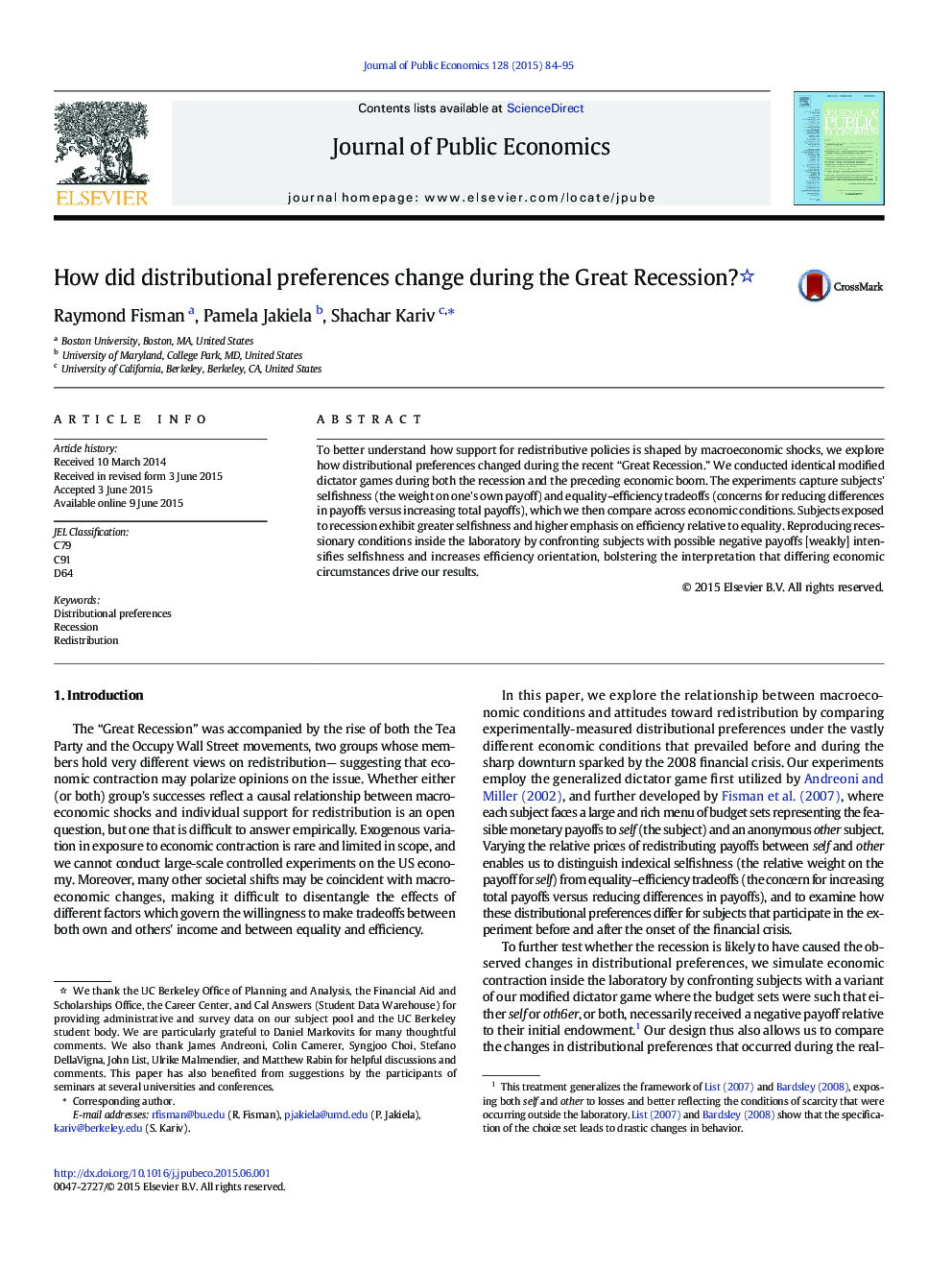| کد مقاله | کد نشریه | سال انتشار | مقاله انگلیسی | نسخه تمام متن |
|---|---|---|---|---|
| 969654 | 1479429 | 2015 | 12 صفحه PDF | دانلود رایگان |
• We conducted identical modified dictator games during the “Great Recession” and the preceding economic boom.
• In the experiments, we present subjects with a decision problem that can be interpreted as a standard economic problem (e.g. the selection of a bundle from a standard budget set).
• These decision problems are presented using a novel graphical experimental interface that allows for the collection of a rich individual-level data set.
• We decompose distributional preferences into two distinct components – fair-mindedness (tradeoffs between oneself and others) and equality-efficiency tradeoffs.
• We find that subjects exposed to recession exhibit greater selfishness and higher emphasis on efficacy relative to equality.
• Reproducing recessionary conditions inside the laboratory intensifies selfishness and increases efficacy orientation.
To better understand how support for redistributive policies is shaped by macroeconomic shocks, we explore how distributional preferences changed during the recent “Great Recession.” We conducted identical modified dictator games during both the recession and the preceding economic boom. The experiments capture subjects' selfishness (the weight on one's own payoff) and equality–efficiency tradeoffs (concerns for reducing differences in payoffs versus increasing total payoffs), which we then compare across economic conditions. Subjects exposed to recession exhibit greater selfishness and higher emphasis on efficiency relative to equality. Reproducing recessionary conditions inside the laboratory by confronting subjects with possible negative payoffs [weakly] intensifies selfishness and increases efficiency orientation, bolstering the interpretation that differing economic circumstances drive our results.
Journal: Journal of Public Economics - Volume 128, August 2015, Pages 84–95
